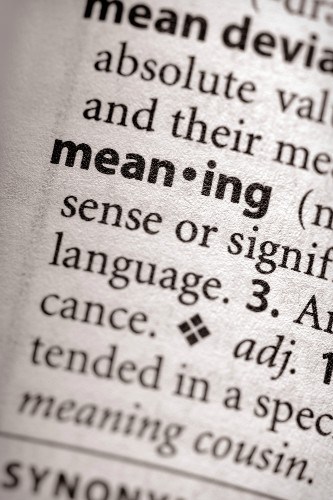About The Word Literature

Learn about the word Literature to help solve your crossword puzzle. Discover Literature definitions and meaning, origins, synonyms, related terms and more at the free Crossword Dictionary.
Literature

| Literature Definition And Meaning |
|---|
What's The Definition Of Literature?
[n] the profession or art of a writer; "her place in literature is secure"
[n] the humanistic study of a body of literature; "he took a course in French literature" [n] creative writing of recognized artistic value [n] published writings in a particular style on a particular subject; "the technical literature"; "one aspect of Waterloo has not yet been treated in the literature" Synonyms | Synonyms for Literature: Related Terms | Find terms related to Literature: ancient literature | article | autograph | belles lettres | belles-lettres | bibliography | body of knowledge | body of learning | brainchild | brochures | circulars | classics | composition | computer printout | contemporary literature | copy | cyclopedia | data | document | draft | edited version | encyclopedia | engrossment | erotic literature | erotica | essay | facts | fair copy | fiction | final draft | finished version | first draft | flimsy | folk literature | French literature | holograph | humane letters | information | kitsch | leaflets | letter | letters | literae scriptae | literary artefact | literary production | lore | lucubration | manuscript | materials | matter | medieval literature | national literature | nonfiction | obscene literature | opus | original | pamphlets | paper | parchment | penscript | piece | piece of writing | play | poem | polite literature | pop literature | popular literature | pornographic literature | pornography | printed matter | printout | production | propaganda | pseudonymous literature | publications | publicity | reading matter | recension | Renaissance literature | republic of letters | scatological literature | screed | scrip | script | scrive | scroll | second draft | serious literature | store of knowledge | system of knowledge | the written word | transcript | transcription | travel literature | treasury of information | typescript | underground literature | version | wisdom literature | work | writing | writings See Also | literary study | piece of writing | profession | writing | written material Literature In Webster's Dictionary \Lit"er*a*ture\, n. [F. litt['e]rature, L.
litteratura, literatura, learning, grammar, writing, fr.
littera, litera, letter. See {Letter}.]
1. Learning; acquaintance with letters or books.
2. The collective body of literary productions, embracing the
entire results of knowledge and fancy preserved in
writing; also, the whole body of literary productions or
writings upon a given subject, or in reference to a
particular science or branch of knowledge, or of a given
country or period; as, the literature of Biblical
criticism; the literature of chemistry.
3. The class of writings distinguished for beauty of style or
expression, as poetry, essays, or history, in distinction
from scientific treatises and works which contain positive
knowledge; belles-lettres.
4. The occupation, profession, or business of doing literary
work. --Lamp.
Syn: Science; learning; erudition; belles-lettres.
Usage: See {Science}. -- {Literature}, {Learning},
{Erudition}. Literature, in its widest sense, embraces
all compositions in writing or print which preserve
the results of observation, thought, or fancy; but
those upon the positive sciences (mathematics, etc.)
are usually excluded. It is often confined, however,
to belles-lettres, or works of taste and sentiment, as
poetry, eloquence, history, etc., excluding abstract
discussions and mere erudition. A man of literature
(in this narrowest sense) is one who is versed in
belles-lettres; a man of learning excels in what is
taught in the schools, and has a wide extent of
knowledge, especially, in respect to the past; a man
of erudition is one who is skilled in the more
recondite branches of learned inquiry.
The origin of all positive science and
philosophy, as well as of all literature and
art, in the forms in which they exist in
civilized Europe, must be traced to the Greeks.
--Sir G.
Lewis.
Learning thy talent is, but mine is sense.
--Prior.
Some gentlemen, abounding in their university
erudition, fill their sermons with philosophical
terms. --Swift.
|
More Crossword Puzzle Words
A | B | C | D | E | F | G | H | I | J | K | L | M | N | O | P | Q | R | S | T | U | V | W | X | Y | Z
Cross Word Of The Day
- Mortgage ‐ a conditional conveyance of property as security for the repayment…
- Reclaimable ‐ possible to…
- Sea poppy ‐ yellow-flowered Eurasian glaucous herb naturalized in along sandy…
- Indigent ‐ poor enough to need help…
- Decolour ‐ remove color from; "The sun bleached the…
- Rescind ‐ annul by recalling or rescinding; "He revoked the ban on smoking";…
- Intelligence operation ‐ the operation of gathering information…
- Thermos flask ‐ vacuum flask that preserves temperature of hot or…
- Charlotte russe ‐ lady fingers enclosing…
- Diakinesis ‐ the final stage of the prophase…